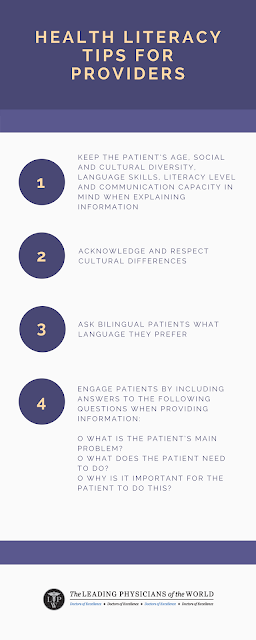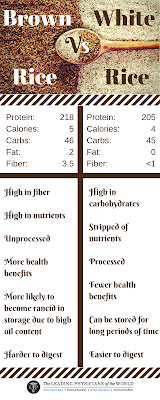Health Literacy Tips for Providers

How can you be sure your patients understand the health information you pass on to them? By focusing on health literacy , doctors, nurses and other clinicians can better help patients comprehend complex health information-something of critical importance given today’s transformative healthcare environment. The definition of health literacy is evolving. It used to be about problems or lack of skills that patients had in medical settings, and it has evolved into looking at the alignment between the demands and complexities of health care systems with the needs and abilities of patients, families, caregivers and anyone receiving health information.Here are the practical health literacy tips for providers. 1. Don’t panic First of all, literacy is very complex. All people have a range of literacy skills and processes. Only a few of these are captured by any assessment. Consider smart phones. They’r...

